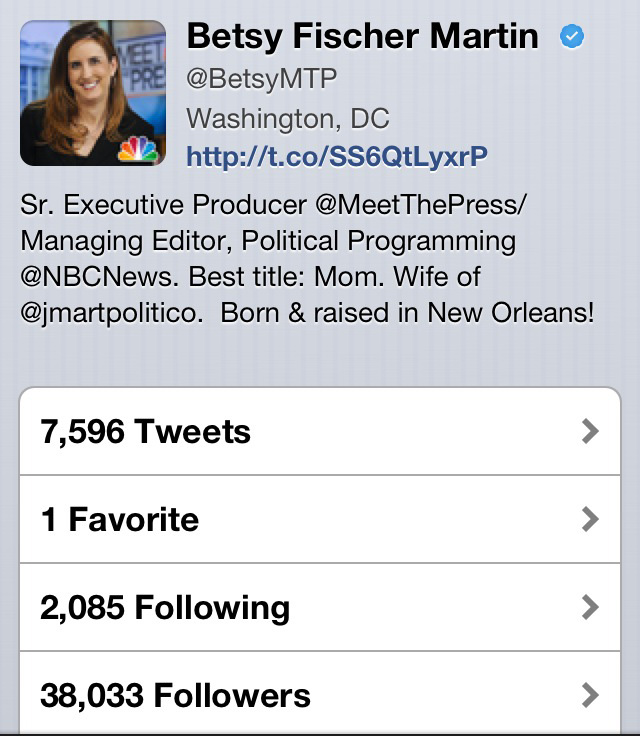Meet the Press Executive Producer Betsy Fischer Martin was in "immediate planning mode" Tuesday when I saw her before a talk to Omaha college students.
It takes a full week to produce the one-hour show, she said. Yet, 24 hours after the Boston Marathon bombings, a basic structure had already emerged. For a show that is more than 60 years on air, dating to the network radio era, sorting out national crises is nothing new.
As Fischer spoke, a manhunt was underway for the bombers. The what, where and who part of the story was known soon after the attack. Meet the Press producers like to have decisions on guests settled by Thursday, but the story had shifted by Friday with the death of one suspect and apprehension of another.
Boston immediately seemed to be a city determined to recover, as citizens returned to the streets, and a Saturday Red Sox game offered an opportunity for normalcy.
By Sunday morning, Meet the Press was left with questions about how and why the Boston Marathon finish line had been attacked. As Fischer promised us, the show featured significant newsmakers, a counter terror debrief and a roundtable that included Tom Brokaw and Doris Kearns Goodwin, a native Bostonian.
"A lot of this is juggling balls in the air," Fischer said. It involves research, use of graphics and videotape. She said the show is a function of editorial judgment and available guests -- typically locked in on Thursday unless there is breaking news.
"What a week it has been, and developments are still moving very quickly in the Boston terror story," host David Gregory opened. Massachusetts Governor Deval Patrick said there was no basis for another imminent threat, and the investigation was continuing. "There are a whole host of questions."
NBC correspondent Pete Williams and a panel of experts explored the investigation and the possibility that there were foreign connections to the attack. There also was debate over whether or not the surviving suspect should be treated as an enemy combatant and for how long.
In a sense, a wide ranging conversation during the Meet the Press journalists' roundtable reflects our national confusion about how to proceed.
"With the death of Osama Bin Laden, Islamic rage did not go away," Brokaw warned. More than 30 million surveillance cameras and $50 billion in private security budgets, he said, is both a relief and loss of personal privacy.
Jeffrey Goldberg has covered terrorist attacks in Israel and the Middle East and suggested that we are entering an "era of the suspicious package" and closed circuit video, but the efforts will not end all attacks. It is also an era of everyone having a smartphone, Peggy Noonan added.
There seems to be agreement that the worst attack since 9/11 is bound to lead to increased concern over future threats. Still, America is torn because of our desire to be different from other parts of the world, retain freedom and refuse to buckle to fear.
We accept certain risks in modern life, including the dangers every time we hop into an automobile. Yet terrorism and the idea that some people hate Americans so much they will commit mass murder continues to be disturbing.
Let us hope that we understand how to make sense of an increasingly ambiguous world of friends and foes. The Meet the Press show this week reflected that we have a long way to go in not only understanding the Boston attack, but also our path to a better future.
I found myself at the end of the week debating with a local radio talk show host whether or not Boston changed the way we go forward. Sure, we must be "defiant" against the terrorist and "resilient" in returning to our way of life. I also think, however, that media and officials will lead public opinion by emphasizing our collective need to watch for and act on possible future threats.
Programs, such as Meet the Press, continue to be an important way we can advance a reasoned national conversation about how to be safe and free.

